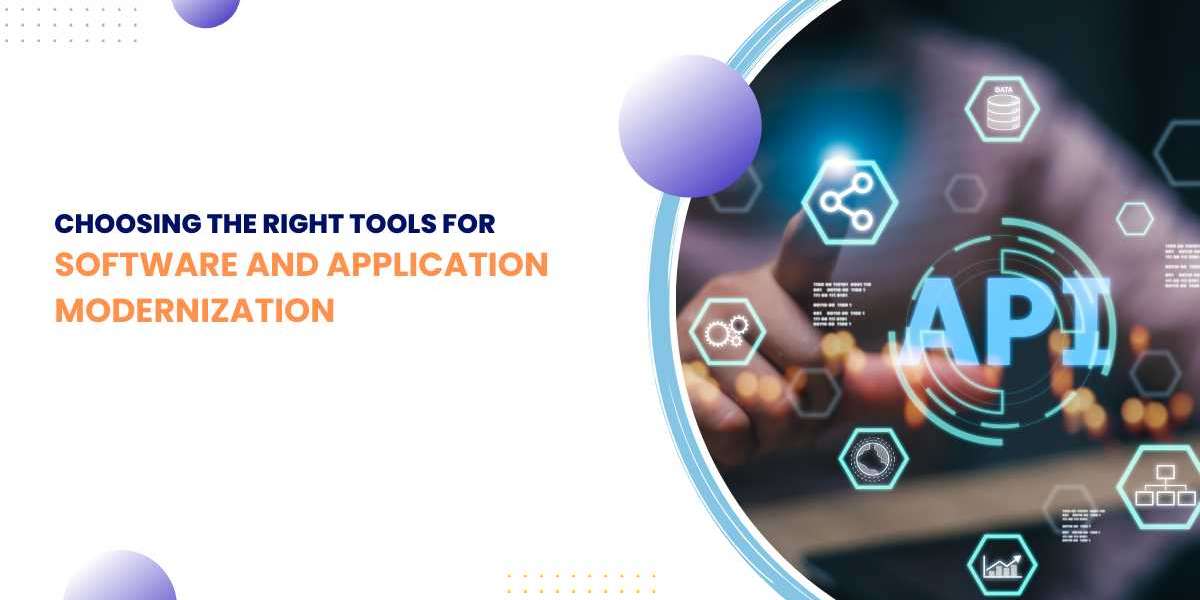Choosing the right tools for software and application modernization is crucial for organizations looking to enhance their operational efficiency, improve user experiences, and stay competitive in today's digital landscape. This blog post will explore the essential tools and strategies for effective modernization.
Understanding Software Modernization
Software modernization refers to the process of updating existing software applications using modern technologies and practices. This can involve migrating to cloud environments, adopting microservices architectures, or enhancing user interfaces. The goal is to ensure that software remains relevant, efficient, and capable of meeting current business needs.
Why Modernize?
Outdated systems can hold businesses back in multiple ways. They are expensive to maintain, vulnerable to security risks, and incompatible with modern technologies. Modernization enables businesses to unlock agility, scalability, and innovation by updating or replacing these systems.
Modernization benefits are:
- Increased Agility: Modern applications can adapt quickly to changing business requirements.
- Cost Efficiency: Reducing maintenance costs associated with outdated systems.
- Improved Performance: Enhanced speed and reliability of applications.
- Better Integration: Modern systems can easily integrate with new technologies and platforms.
Tools for Application Modernization
When embarking on application modernization, selecting the right tools is essential. Here are some key categories of tools that can facilitate this process:
1. Containerization Tools
Containerization allows developers to package applications with all their dependencies into isolated environments. This approach simplifies deployment and scaling. Popular containerization tools include:
- Docker: A leading platform for building and managing containers.
- Kubernetes: An orchestration tool that automates the deployment, scaling, and management of containerized applications.
These tools are vital for organizations looking to transition from monolithic architectures to microservices, a common strategy in application modernization services.
2. CI/CD Tools
Continuous Integration and Continuous Deployment (CI/CD) tools streamline the development process by automating testing and deployment. This leads to faster release cycles and improved code quality. Notable CI/CD tools include:
- Jenkins: An open-source automation server that supports building, deploying, and automating software projects.
- GitLab CI/CD: Integrates with Git repositories for streamlined development workflows.
Utilizing CI/CD tools is essential for maintaining high-quality standards during the modernization process.
3. Cloud Migration Tools
Migrating applications to the cloud is a significant aspect of modernizing legacy systems. Cloud migration tools help facilitate this transition by providing frameworks for moving data and applications securely. Key tools include:
- AWS Migration Hub: Offers a single location to track the progress of application migrations across multiple AWS services.
- Azure Migrate: Provides a centralized hub for assessing your on-premises environment before migration.
These tools help organizations leverage cloud capabilities while modernizing their legacy systems.
4. API Management Tools
APIs (Application Programming Interfaces) are crucial for enabling communication between modern applications and legacy systems. API management tools help create, publish, and manage APIs effectively. Some popular options include:
- Apigee: A comprehensive platform for developing APIs that can connect legacy systems with modern applications.
- MuleSoft: Offers an integration platform that connects apps, data, and devices with APIs.
Implementing robust API management is vital for ensuring seamless interactions between new and legacy systems during modernization efforts.
Strategies for Legacy System Modernization
Legacy system modernization involves specific strategies tailored to address the unique challenges posed by outdated technologies. Here are some common approaches:
1. Rehosting (Lift-and-Shift)
Rehosting involves moving applications from on-premises servers to cloud infrastructure without modifying the underlying code. This method is often used as a first step in the modernization journey.
2. Refactoring
Refactoring entails restructuring existing code without changing its external behavior. This improves performance and maintainability while preparing it for future enhancements.
3. Rearchitecting
Rearchitecting involves redesigning an application’s architecture to incorporate modern technologies such as microservices or serverless computing. This strategy allows organizations to take full advantage of cloud capabilities.
4. Rebuilding
In cases where legacy systems are too outdated or complex, rebuilding from scratch may be necessary. This approach allows organizations to create new applications that meet current business needs without being constrained by old codebases.
Conclusion
Choosing the right tools for software and application modernization is critical for any organization looking to thrive in today's fast-paced digital environment. By leveraging containerization, CI/CD processes, cloud migration strategies, and effective API management, businesses can successfully transition from legacy systems to modern solutions that enhance agility, reduce costs, and improve overall performance.As you embark on your modernization journey, consider engaging with professional software modernization service providers like Tech.us so that they can guide you through the complexities of this process. By investing in the right tools and strategies now, you will set your organization up for long-term success in a rapidly evolving technological landscape.








